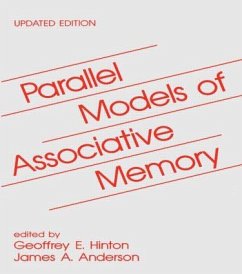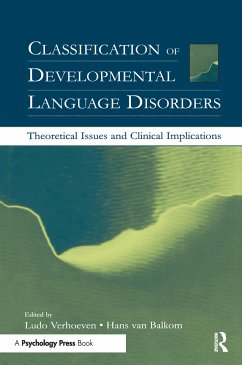
Systems Factorial Technology
A Theory Driven Methodology for the Identification of Perceptual and Cognitive Mechanisms
Herausgegeben: Little, Daniel; Altieri, Nicholas; Fific, Mario; Yang, Cheng-Ta

PAYBACK Punkte
40 °P sammeln!
Systems Factorial Technology: A Theory Driven Methodology for the Identification of Perceptual and Cognitive Mechanisms explores the theoretical and methodological tools used to investigate fundamental questions central to basic psychological and perceptual processes. Such processes include detection, identification, classification, recognition, and decision-making.This book collects the tools that allow researchers to deal with the pervasive model mimicry problems which exist in standard experimental and theoretical paradigms and includes novel applications to not only basic psychological que...
Systems Factorial Technology: A Theory Driven Methodology for the Identification of Perceptual and Cognitive Mechanisms explores the theoretical and methodological tools used to investigate fundamental questions central to basic psychological and perceptual processes. Such processes include detection, identification, classification, recognition, and decision-making.
This book collects the tools that allow researchers to deal with the pervasive model mimicry problems which exist in standard experimental and theoretical paradigms and includes novel applications to not only basic psychological questions, but also clinical diagnosis and links to neuroscience.
Researchers can use this book to begin using the methodology behind SFT and to get an overview of current uses and future directions. The collected developments and applications of SFT allow us to peer inside the human mind and provide strong constraints on psychological theory.
This book collects the tools that allow researchers to deal with the pervasive model mimicry problems which exist in standard experimental and theoretical paradigms and includes novel applications to not only basic psychological questions, but also clinical diagnosis and links to neuroscience.
Researchers can use this book to begin using the methodology behind SFT and to get an overview of current uses and future directions. The collected developments and applications of SFT allow us to peer inside the human mind and provide strong constraints on psychological theory.













